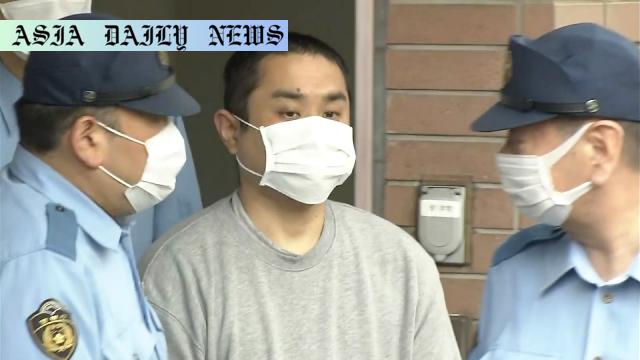Tokyo Knife Attack suspect revealed struggles with academic pressure imposed by parents.
- The Tokyo Knife Attack suspect is a 43-year-old man named Toda Yoshitaka.
- Toda confessed to struggling with academic pressure imposed by his parents during childhood.
- The incident sparked debates about mental health and education-driven parental expectations.

Understanding the Tokyo Knife Attack and Its Circumstances
The recent knife attack at a Tokyo subway station has shocked the nation, shedding light on deeper societal issues surrounding parental expectations and psychological stress. The suspect, 43-year-old Toda Yoshitaka, allegedly carried out the attack as a response to longstanding grievances against the pressure and expectations placed upon him during his childhood education. Investigative sources reveal that Toda’s parents scolded him for underperforming on tests during elementary school, which planted the seeds of his struggles with mental health.
Toda stated during interrogation that he faced immense pressure from his education-driven parents, which escalated during his junior high school years. He eventually stopped attending school altogether, unable to cope with the mounting stress. Instead of rebounding, he became isolated and carried his resentment into adulthood, believing that such parental behavior could lead children to crime. This tragic series of events may signal a need for parents and educators alike to reconsider traditional approaches to academic achievement in Japan.
A Deeper Look into the Life of Toda Yoshitaka
Although Toda moved from Tokyo to Nagano four years ago, his life did not reflect any significant recovery or stability. Investigators found no evidence of employment or income, which further emphasizes the extent of his struggles. Living alone in Nagano, he seemingly carried his childhood pain and manifest feelings of failure throughout his life. This is not only a tale of personal tragedy but also serves as a window into the darker consequences of unbalanced and overly rigid societal values surrounding academic performance.
The knife attack occurred at the prestigious Todaimae metro station, close to the University of Tokyo, a symbol of academic excellence. Such a location may not have been a coincidence. For Toda, the attack appears to have been a calculated attempt to draw public attention to the pressures placed upon children in highly competitive academic environments. Whether this was a cry for help, revenge, or activism, the incident underlines critical gaps in addressing mental health issues and nurturing healthy relationships between parents and children.
The Role of Education and Mental Health Support
Japan’s emphasis on academic excellence is well-known globally, often associated with its competitive education system. However, such emphasis can sometimes lead to excessive stress and significant psychological effects on students. Toda’s story, while extreme, is not unique. The incident highlights the broader issue of how society values academic and professional achievements over mental health and personal development. This imbalance can create decades of trauma, as evident in Toda’s case.
What’s critical now is shifting towards fostering environments that enforce not only high academic standards but also emotional and psychological support for students. Parents, too, play a vital role; instead of pressuring children for academic performance, open communication and understanding could significantly alter outcomes. The incident is a dire wake-up call for policymakers, parents, and educators to collaborate in nurturing the younger generation.
The Path Forward
As the investigation into the Tokyo Knife Attack continues, the larger questions loom over society. What steps can be taken to prevent such incidents in the future? How can educational and family systems improve to tackle the root causes of crime and mental health struggles? While systemic changes take time, tangible steps can begin on an individual level. Families must prioritize emotional well-being and healthy communication with their children, while schools should incorporate mental health resources alongside academic supports.
Furthermore, incidents like this challenge the notion of ‘success’ in modern society. Are academic results truly the pinnacle of achievement, or should resilience, creativity, and emotional health carry equal weight? As societies evolve, these are questions worth pondering—particularly when the cost of neglecting them could result in tragic consequences as observed in Tokyo.



Commentary
Reflecting on the Consequences of Parental Pressure
The tragic story surrounding the Tokyo Knife Attack opens a window into an often-overlooked issue: the psychological toll of academic expectations. As parents, mentors, and policymakers, it is vital to consider whether our focus on achievements and test scores is creating more harm than good. Toda Yoshitaka’s case, while extreme, is a sobering reminder of the consequences of neglecting the mental health of children. From his early academic struggles to his adult isolation, we see the devastating long-term impact of unresolved emotional distress.
Changing Perspectives on Success and Mental Health
It is essential to redefine our understanding of success in today’s world. While academic excellence is undoubtedly valuable, it must not come at the expense of a child’s mental well-being. Parents, in particular, have the responsibility to provide support and compassion rather than solely focusing on results. As Toda himself suggested, extreme parental pressure can push children toward destructive actions, raising concerns that extend beyond individual families to broader societal norms.
Moving Toward Healthier Educational Practices
This incident is also a wake-up call for schools and educational institutions. Institutions should serve not only as centers for academic growth but also as safe havens for emotional support. Measures such as counseling programs, peer support groups, and training for educators to recognize mental health issues could go a long way in preventing tragedies like this. More importantly, fostering an environment of inclusivity and understanding could help break the cycle of stress and failure that led to Toda’s fateful actions.
Ultimately, the lessons from this case extend far beyond Tokyo, resonating with families and societies worldwide. If we are to prevent such incidents in the future, it will take collective effort to prioritize mental health and redefine success for the betterment of all.